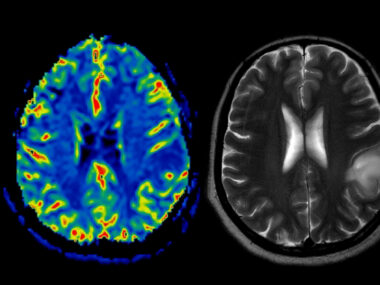Tecfidera, Gilenya Equally Effective, But More MS Patients Stop Tecfidera, Real-World Study Shows
Written by |

Tecfidera (dimethyl fumarate) and Gilenya (fingolimod) are equally effective in treating multiple sclerosis (MS), but Tecfidera shows higher rates of discontinuation, according to a real-world study.
The study, “Discontinuation and comparative effectiveness of dimethyl fumarate and fingolimod in 2 centers,” was published in the journal Neurology Clinical Practice.
Tecfidera (marketed by Biogen) and Gilenya (marketed by Novartis) are approved oral disease-modifying therapies for the treatment of relapsing-remitting multiple sclerosis (RRMS). So far, no randomized, controlled trial has compared the effectiveness and discontinuation of these therapies, but real-world studies of MS patients at several sites may help fill this knowledge gap.
A recent study of RRMS patients in Italy suggested that Tecfidera and Gilenya are equally effective. While another study showed that patients receiving Tecfidera are more likely to stop treatment than those on Gilenya, due to adverse side effects.
To clarify these results in a larger population involving more than one site, researchers compared the effectiveness and discontinuation rates of Tecfidera and Gilenya for two years in MS patients treated at two large academic MS centers.
The team noted that the study included patients with RRMS or progressive MS to demonstrate the real-world experience of the use of disease-modifying therapies.
Discuss the latest research in the MS News Today forums!
Researchers retrospectively analyzed data of 737 patients treated with Tecfidera and 535 treated with Gilenya at the Cleveland Clinic Mellen Center, in Ohio, and the Rocky Mountain MS Center at the University of Colorado.
Most patients were women, white, had RRMS, and had MS for about 13 years. Mean age of patients receiving Tecfidera was 46.4 years, and for those treated with Gilenya mean age was 43.3 years.
The team found no significant differences in effectiveness between Tecfidera and Gilenya in MS patients, with 61.2% of Tecfidera patients and 63.4% of Gilenya patients showing no disease activity after two years.
However, men and patients with RRMS had a higher likelihood of developing more brain lesions with Tecfidera than with Gilenya. Also, patients who had not received treatment before Tecfidera showed a greater likelihood of relapse compared with those receiving Gilenya as first-line therapy, suggesting a reduced effectiveness of Tecfidera as first-line treatment.
Interestingly, the proportion of MS patients, including RRMS patients, who had relapses during treatment was lower than those reported in Phase 3 clinical trials, confirming treatment effectiveness in the real-world.
This difference may be a result of the inclusion in the study of older patients with both active and inactive disease activity at the beginning of treatment, whereas clinical trials were restricted to young patients with recent disease activity.
Regarding discontinuation, significantly more patients treated with Tecfidera (44.2%) stopped treatment, compared with those receiving Gilenya (34.8%), and discontinuation occurred earlier in Tecfidera patients.
In both groups, the most common reason for discontinuation was intolerability, but Tecfidera patients were significantly more likely to stop therapy because of intolerability issues (56.1% versus 46.3% in the Gilenya group).
Gastrointestinal problems with Tecfidera (57.9%) and headaches with Gilenya (14%) were the main intolerability issues leading to discontinuation.
No difference was found between both treatments regarding discontinuation due to disease activity — 10% with Tecfidera versus 11.4% with Gilenya.
Interestingly, the team noted, women discontinued Tecfidera therapy more due to intolerability than men, which was consistent with previous reports.
“The observed sex differences in DMT [Tecfidera] discontinuation may be clinically relevant and warrant further investigation,” the researchers wrote.
Older patients also were more likely do discontinue Tecfidera treatment compared to Gilenya.
Overall, the team concluded that this real-world data confirms the results of previous studies demonstrating similar effectiveness between Tecfidera and Gilenya, and an increased chance of discontinuing Tecfidera treatment compared with Gilenya, largely due to intolerability issues.

